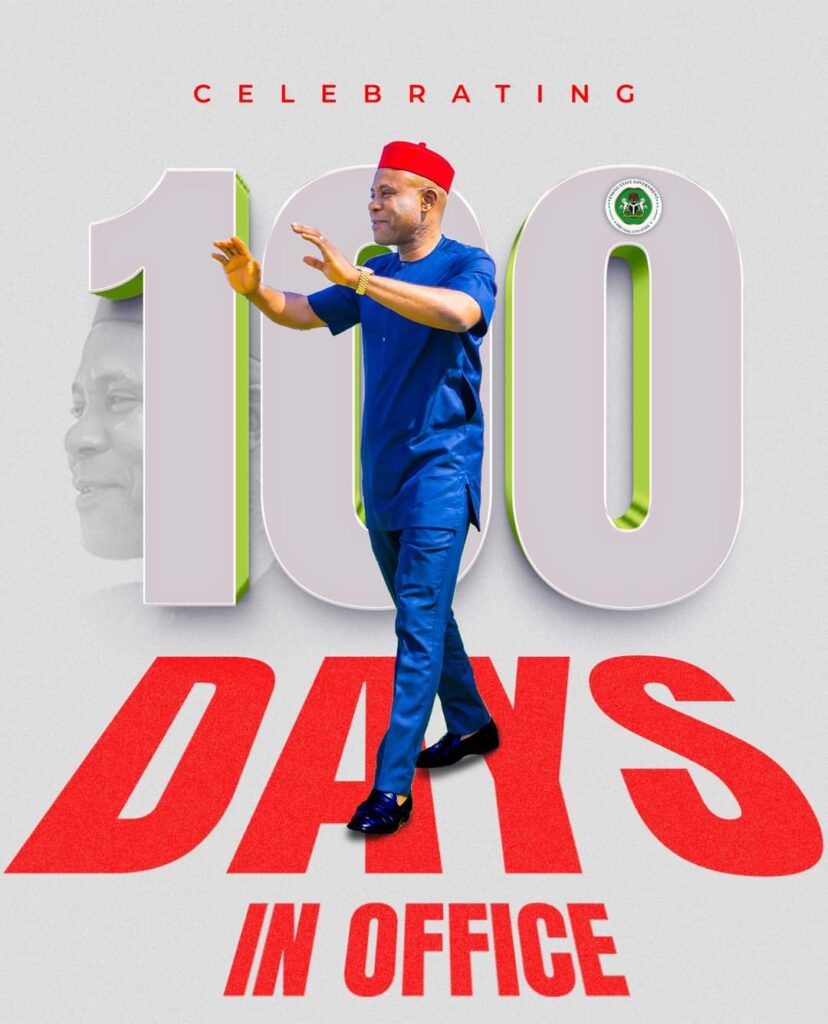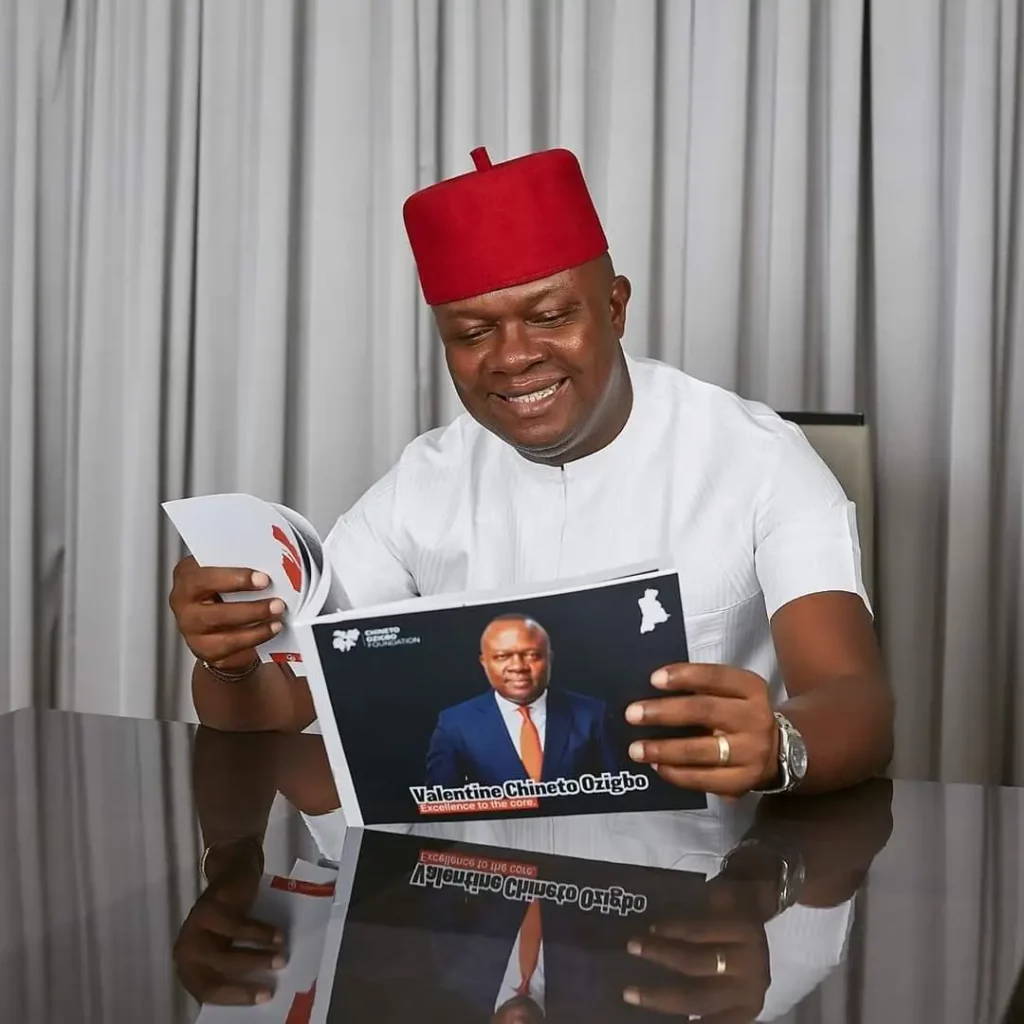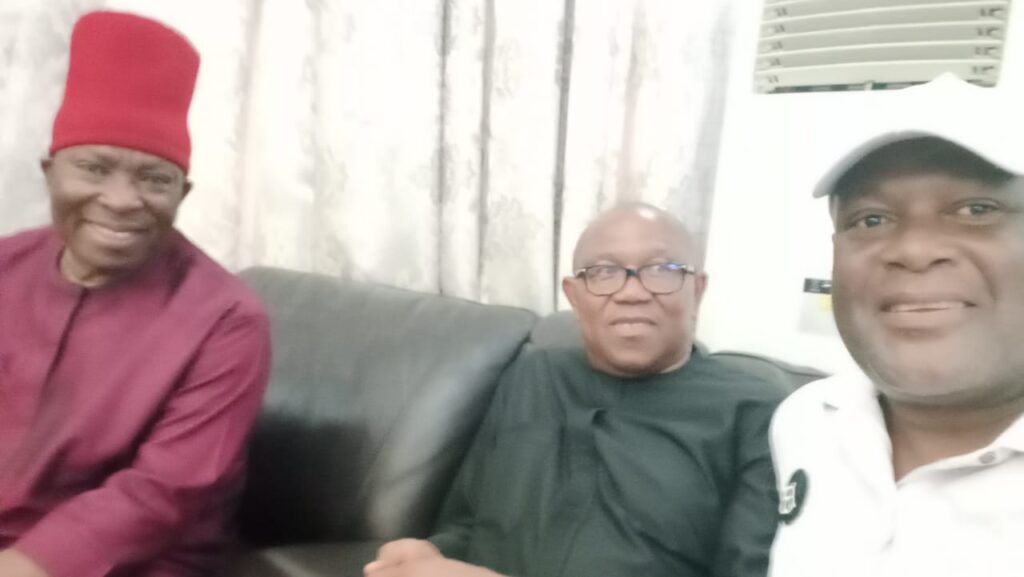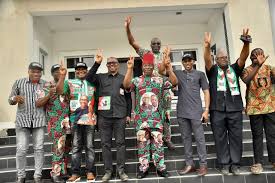EPT/AN/SEN/05/2023 between:
Ferdinand Dozie Nwankwo & Anor
Vs
INEC & Ors.
Summary of Judgment delivered on Friday, 8 September 2023.
The Tribunal gave a summary of the Petitioner’s case, the grounds of the Petition and reliefs sought by the Petitioners, and the circumstances of the Respondent’s reliance and the Petitioner’s reply.

The interlocutory Applications all touch on jurisdiction and as such, they were all consolidated and made the first issue in determining the substantive issues in the Petition.
The Tribunal consequently raised the following two(2) issues:
- Whether the issues raised in the Petition are cognizable to confer jurisdiction on the Honourable Tribunal.
- Whether by the state of pleadings and evidence led, the Petitioners can be said to have made out any case to be entitled to the reliefs sought in this Petition.

On issue No. 1
The court found that the main complaint of the Petitioners is that the 3rd Respondent is not qualified to contest the challenged election based on invalid nomination and sponsorship of the 3rd Respondent by the 2nd Respondent, which nomination and sponsorship, the Petitioners claim did not comply with the Electoral Act 2022.

The Tribunal found that there is no single constitution vice established by the Petitioners which the nomination or sponsorship of the 3rd Respondent falls into.
The Tribunal relied on section 134(3) of the Electoral Act 2022 and found that the issue of qualifications or non-qualification of a candidate must be under constitutional provisions.
The Electoral Act 2022 did not provide for challenging an election on grounds of qualifications that border on the nomination and sponsorship of a candidate. The issue of qualification is determined exclusively by reference to constitutional provisions.
From the Petition, it is clear that the complaint of the Petitioners has its roots in the alleged breach of the Electoral Act 2022.

The Petitioners are inviting the Tribunal to disqualify the 3rd Respondent based on the 3rd Respondent’s nomination and sponsorship’s alleged infraction of the Electoral Act without pointing out any constitutional vice such nominations or sponsorship committed and this Tribunal lacks the vires to so do.
The Tribunal called in aid the provision of section 65(2)(b) and found that what is required is that a Political party has sponsored a candidate and and infractions relating to sponsorship or nomination are pre-election matters. The Court also found that membership of a Political party is non-justiciable. Section 65(2)(b) of the CFRN 1999 (as amended} did not provide that the name of a member of a Political party must be in the register submitted to INEC before the election and such cannot be read into the CFRN 1999(as amended).
S. 285(14) of the CFRN 1999 (as amended) provided for what pre-election matters are and the complaints of the Petitioners in this Petition are captured by the definition. The grouse of the Petitioners are predicated on their perceived complaint of the nomination and sponsorship of the 3rd Respondent, which are all pre-election matters. The Petitioners also complained that the 3rd Respondent was not a member of the 2nd Respondent and such are within the internal affairs of a Political party which this court lacks the jurisdiction to interfere with.
The tribunal also found that the complaint of the Petitioners on the issue of nomination and sponsorship of the 3rd Respondent is statute-barred calling in aid the provision of section 285(9) of the CFRN 1999 (as amended).

Looking at the Petitioners’ cause of action which is the issue of the nomination and sponsorship of the 3rd Respondent arose on 3rd June 2022- the day the primary election of the Labour Party took place and not on 25 February 2023- the day the challenged election took place.
Under section 285(9) of the CFRN 1999 (as amended) the time limit for bringing the Petitioner’s complaint is 14 days. And even if it’s conceded that Petitioner’s cause of action arose on 27 February 2023 – the day of the declaration of result, the time of filing this Petition is beyond 14 days and the appropriate court for such complaint is the Federal High and not this Honourable Tribunal.
On locus standi, the Tribunal held the view that the Petitioners lack the locus standi to complain of the 3rd Respondent’s nomination and sponsorship by the 2nd Respondent. Neither of the Petitioners is a member of the Labour Party – 2nd Respondent. The Petitioners are not permitted to delve into the affairs of the Labour Party. The Tribunal heavily relied on the case of Shinkafi v Yari.
which the Tribunal found the facts to be impari material with the facts of the present Petition.

The Tribunal held that the Petitioners must show how the alleged breach of the Electoral Act in the nomination and sponsorship of the 3rd Respondent affected their right, when they are not members of the 2nd Respondent – Labour Party who nominated and sponsored the 3rd Respondent. It’s only members of the 2nd Respondent – Labour Party that have such rights and not total strangers as the Petitioners.
On the issue of the requisite statutory Notice not being given to INEC, it’s only INEC or members of the same Political party who complain that failure to give notice affected their rights and not strangers like the Petitioners.
The Tribunal held that the Petitioners do not have the locus standi to institute this Petition and the Tribunal is divested with the jurisdiction to entertain same.
Considering the state of judicial precedence, it will amount to gross abuse of the judicial process for entertaining an action where a superior court has determined the issue.
The 3rd Respondent relied on the decision of the Court of Appeal in CA/AW/24/2023 between Labour Party v PDP & Ors. to show that his membership and sponsorship have been determined by the Court of Appeal.

It is important to point out that the Petitioners pleaded and relied on the decision of the FHC which disqualified the 3rd Respondent and which decision was set aside by the Court of Appeal. In the said decision of the Court of Appeal, the court upheld the preliminary objection of the Appellant on the issue of locus standi of the plaintiff at the lower court.
The Tribunal expressed that it’s in agreement with PIN IKWUETO, SAN, (learned 3rd Respondent’s lead counsel) on the status of that the 3rd Respondent is the candidate of the 3rd Respondent being a judgment in rem against the whole world, including the Petitioners, whom one of their lead counsel (BEI Nwofor, SAN) participated in the case that lead to the Court of Appeal decision.

The said case of the Court of Appeal in CA/AW/24/2023 between Labour Party v PDP & Ors. also constitutes estoppel per rem judicata against the whole world as it has determined the status of the 3rd Respondent a member of the Labour Party and the 3rd Respondent is the sponsored candidate of the Labour Party. It is therefore an abuse of the judicial process to attempt to relitigate the issue again. The Petition is founded on spent issues and issues already determined by the Court of Appeal and it’s aimed at annoying the Respondents, hence gross abuse of the judicial process.
Unfortunately, too, the facts pleaded in the Petition did not also support the grounds of the PETITION. For all four grounds of the Petition, the only facts pleaded are facts relating to the nomination and sponsorship of the 3rd Respondent as being non-compliant with the Electoral Act.
On the whole, the Petition is thus incompetent and according struck out.
On issue No. 2.
The Tribunal reiterated that the issue of membership of a Political party is non-justiciable, while issues of nomination and sponsorship of a candidate are within the internal affairs of the Political party which the Tribunal cannot interfere with. Any challenge of qualification must be domiciled within constitutional provisions.
Sections 65 and 66 of the CFRN 1999(as amended) provide for qualification and disqualification to contest senatorial elections. The Petitioners misconceived these provisions of the CFRN 1999 by their contentions in this Petition.

The essence of section 65(2)(b) is to bar independent candidature. All that the 3rd Respondent needs to show is that he is a member of the Labour Party and that he was sponsored by the Labour Party. The issue of whether the sponsorship was valid or not did not find any expression in the constitution.
The Tribunal has no Jurisdiction to inquire into the primaries of a Political party.
The Petitioners did not claim that the 3rd Respondent was an independent candidate. They claimed that the 3rd could not have been a member of the 2nd Respondent. The Tribunal found that the pre-requisites for political party’s primaries are not within the jurisdiction of this Tribunal to determine.

It is within the powers of a Political party to determine who are its members. The presumption is that a candidate fielded by INEC for a Political party in an election is a member of the political party and it’s for the Petitioners to rebut this presumption. And even if the Petitioners sought to rebut the presumption, the Tribunal cannot entertain such.
The NWC of the Labour Party or its members did not come to oppose the 3rd Respondent’s membership or sponsorship, it is not for the Petitioners to do.

The omission of the 3rd Respondent from the final list of candidates by INEC was due to the pending litigation over his candidature as evidenced by the FHC and CA decisions tendered in this Petition. Surprisingly, the Petitioners are contending in this Petition that the omission of the 3rd Respondent from the final list of candidates means that the 3rd Respondent did not contest the election. The Court of Appeal decision ordered that any action taken under the FHC decision be a nullity. This means that parties returned to the status quo ante bellum before the decision of the FHC.
The issue of publication of a candidate’s name is merely administrative and non-publication of a candidate’s name will not ipso facto invalidate the candidature or the nomination of the candidate.
The Tribunal expressed that it’s under a duty to make a finding on the 3rd Respondent’s membership of the 2nd Respondent. The evidence before the court shows that the 3rd Respondent is qualified to contest the challenged election under the CFRN 1999 (as amended) and is not disqualified by the Constitution.
On the whole, the Petition is lacking in merit and it’s accordingly dismissed.
Member I concurs
Member II concurs.
